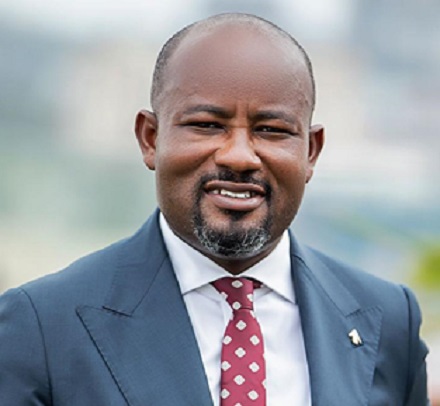
By Isaac FRIMPONG (Ph.D.)
In a world that constantly evolves, growth is not just a fundamental part of life; it is a necessity. Just as plants need nurturing to thrive, humans need proper nutrition, healthcare, and education to reach their full potential. However, growth alone is not enough, it must be carefully managed to yield benefits.
Unchecked growth can hinder progress and prosperity without proper planning and timely interventions. This first article in the series on the book “Human Resource to Human Capital: The Essence of Population Management,” explores the history and challenges of population growth in Ghana and why managing it is crucial for the country’s development.
The Balancing Act of Growth
Human population growth, both in numbers and capabilities, if not matched with adequate resources and development, can quickly become a national liability. In contrast, human capital, which refers to the “knowledge, skills, and health that people accumulate throughout their lives”, is essential for wealth creation, and ensuring national relevance on the global stage.
However, the pressing question remains: Is Ghana’s current population growth rate of 2.1 percent annually – higher than the global average of 1 percent – a threat or an asset for sustainable development?
At the current rate, Ghana’s population of over 30 million could double in less than 40 years. While the country benefits from a large youthful demographic within the working-age group (15-64 years) – a potential economic advantage – rapid population growth frequently outpaces necessary development.
Additionally, the age dependency ratio presents a concerning picture, with 66 dependents (children aged 0-14 and elderly aged 65 ) for every 100 working-age individuals. This creates significant pressure on the workforce. Cultural obligations further compound this burden, making it increasingly difficult for families to adequately support one another.
The Strain on Education and Healthcare
One of the clearest examples of the impact of rapid population growth can be seen in the education sector. Historically, university students enjoyed adequate accommodation, scholarships, and smaller class sizes. Today, many students face overcrowded classrooms and struggle to find housing, leaving them vulnerable to rogue landlords.
These conditions make academic success challenging and slow the development of the country’s human resources into human capital. In primary and secondary schools, the story is no different. Children often attend classes in cramped conditions, sometimes even in outdoor settings (under trees), as communities expand at a rate that exceeds the capacity local authorities can address.
Similarly, Ghana’s healthcare system is under severe pressure. Hospitals are overwhelmed with patients, leading to long waiting times in uncomfortably congested corridors. To compound the issue, many health professionals seek employment opportunities abroad, draining the system of much-needed talent. The emigration of health professionals not only weakens the healthcare system but also threatens the quality of care available to the population.
The Broader Implications
The challenges of rapid population growth extend beyond education and healthcare, influencing governance, security, inequality, and employment opportunities. An unchecked population growth without matching resources can lead to frustration, social unrest, and even instability. Furthermore, the growing gap between the rich and the poor is magnified by limited access to basic resources, creating long-term inequality.
Enablers such as teen pregnancy, child marriage, and inadequate education on contraceptive options fuel population growth. Annually, over half a million adolescents in Ghana become pregnant, while numerous children are compelled into matrimony at a young age.
Without addressing these root causes through enhanced reproductive health education and services, these issues will endure, leading to an increasingly unmanageable population. This has the potential to turn Ghana’s greatest asset – its people – into a burden rather than an asset, risking the well-being of both current and future generations.
Conclusion
In the 21st century, building human capital through skills development and innovation is essential for national development. A well-educated, skilled, and healthy population can contribute effectively to the economy, helping to drive sustainable development. Unlike forces of nature such as weather patterns, population growth can be controlled through thoughtful strategic policies.
For instance, allowing high rates of teen pregnancies and child marriages, while failing to provide adequate access to contraceptive services and education, worsens the challenges of population growth.
These choices not only expand the population but also place an enormous burden on governance and development efforts. Ghana’s leaders must prioritise population management, making deliberate efforts to eliminate the enablers while improving access to healthcare, education, and family planning services.
In the next article, I will explore how rapid population growth impacts governance in Ghana, examining how poor population management places undue strain on leadership and makes it difficult for governments to effectively manage resources and deliver essential services.
The writer is a Researcher and Consultant
The post Population growth: an asset or liability appeared first on The Business & Financial Times.
Read Full Story



















Facebook
Twitter
Pinterest
Instagram
Google+
YouTube
LinkedIn
RSS